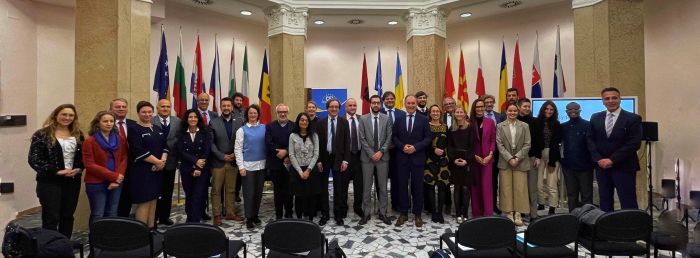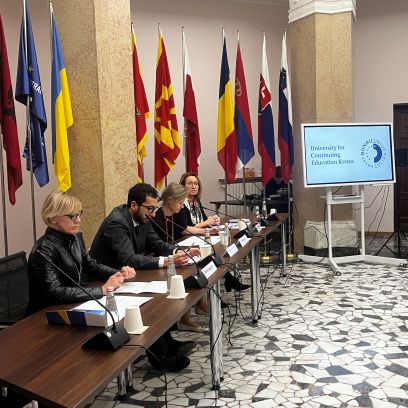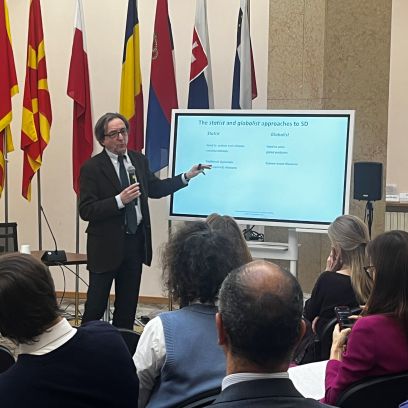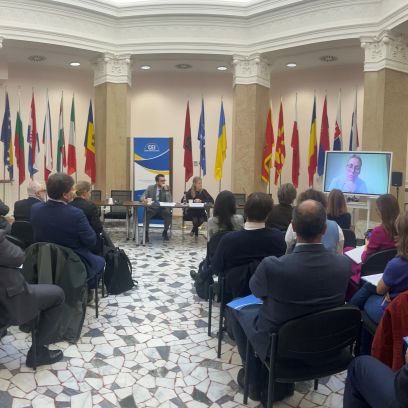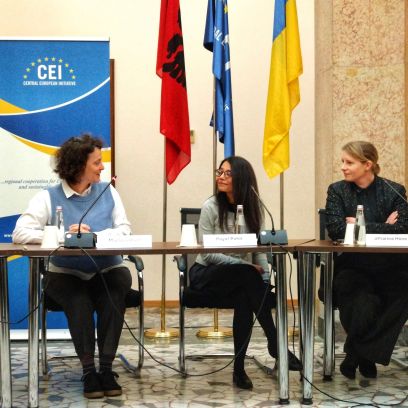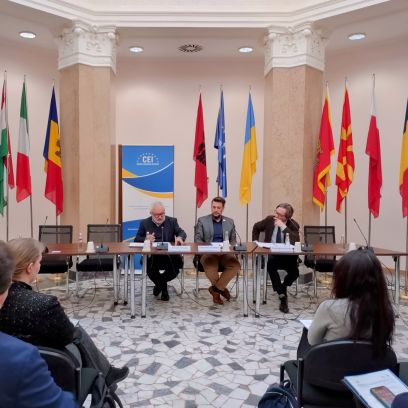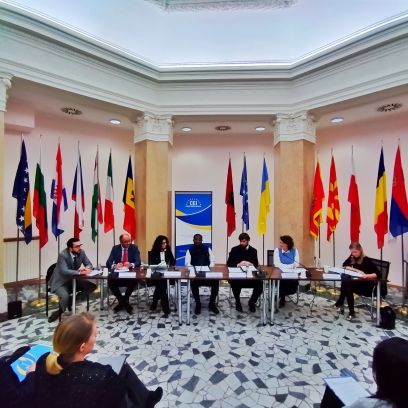The participants in the inaugural Conference on Science Diplomacy (SD), held on 20-21 November 2024 at the CEI Headquarters, included diplomats, academics, and science diplomacy practitioners from across Central, Eastern, and South-Eastern Europe.
Organised jointly by the CEI and the University for Continuing Education Krems (UWK), in cooperation with the EU Science Diplomacy Alliance (EUSDA), and with the financial support of the Friuli Venezia Giulia Region, the conference focused on exploring SD governance and capacity building in the target region, while fostering greater regional collaboration through multi-stakeholder partnerships.
The event responded to a dynamic backdrop, marked by the establishment of the EU Science Diplomacy Alliance in 2021 and the anticipated release of the European Framework for Science Diplomacy, expected in the coming months. As SD increasingly becomes a key tool in foreign policy and research, the conference tackled pressing challenges such as the necessity to enhance the involvement of the diplomatic community in SD discussions, and to reach a common understanding of the potential of SD in addressing global challenges effectively.
This event made clear the importance of science diplomacy in a complex and changing environment. Science is more than a problem - solver; it can be a problem - preventer said Vice-Rector Prof. Viktoria Weber of the University for Continuing Education Krems.
Three main themes guided the discussions: capacity building and skills development, governance and institutionalisation, and multi-stakeholder partnerships. Pierre-Bruno Ruffini (University of Le Havre) and Vito Cecere (German Ambassador to Austria) delivered insightful keynotes on the connections between science and diplomacy, setting the tone for the conference's lively and constructive conversations.
Expert-led workshops, such as those by Katharina Höne (DLR-German Aerospace Centre) and Simone Arnaldi (University of Trieste), provided deeper insights into skill-building and governance strategies, which benefitted from the active participation of the audience. Their outcomes were further discussed in the framework of Thematic Panels by experts such as Martina Hartl (Austrian Ministry of Education, Science and Research), Payal Patel (The World Academy of Sciences), Sebastian Schäffer (Institute for the Danube Region and Central Europe), Alessandro Garbellini (Italian Ministry of Foreign Affairs and International Cooperation), Samuel Partey (UNESCO Regional Bureau for Science and Culture in Europe), Emanuela Colombo (Politecnico di Milano), and Mounir Ghribi (National Institute of Oceanography and Applied Geophysics).
Science diplomacy is not only a key instrument for addressing global challenges, but also a strategic tool for fostering cross-border cooperation, innovation, and sustainable development in the CEI region - Roberto Antonione, CEI Secretary General.
The conference helped establish a preliminary network of SD enthusiasts in Central, Eastern, and South-Eastern Europe, which will be involved in future activities in this area of work.
For more info: lombardo@cei.int

